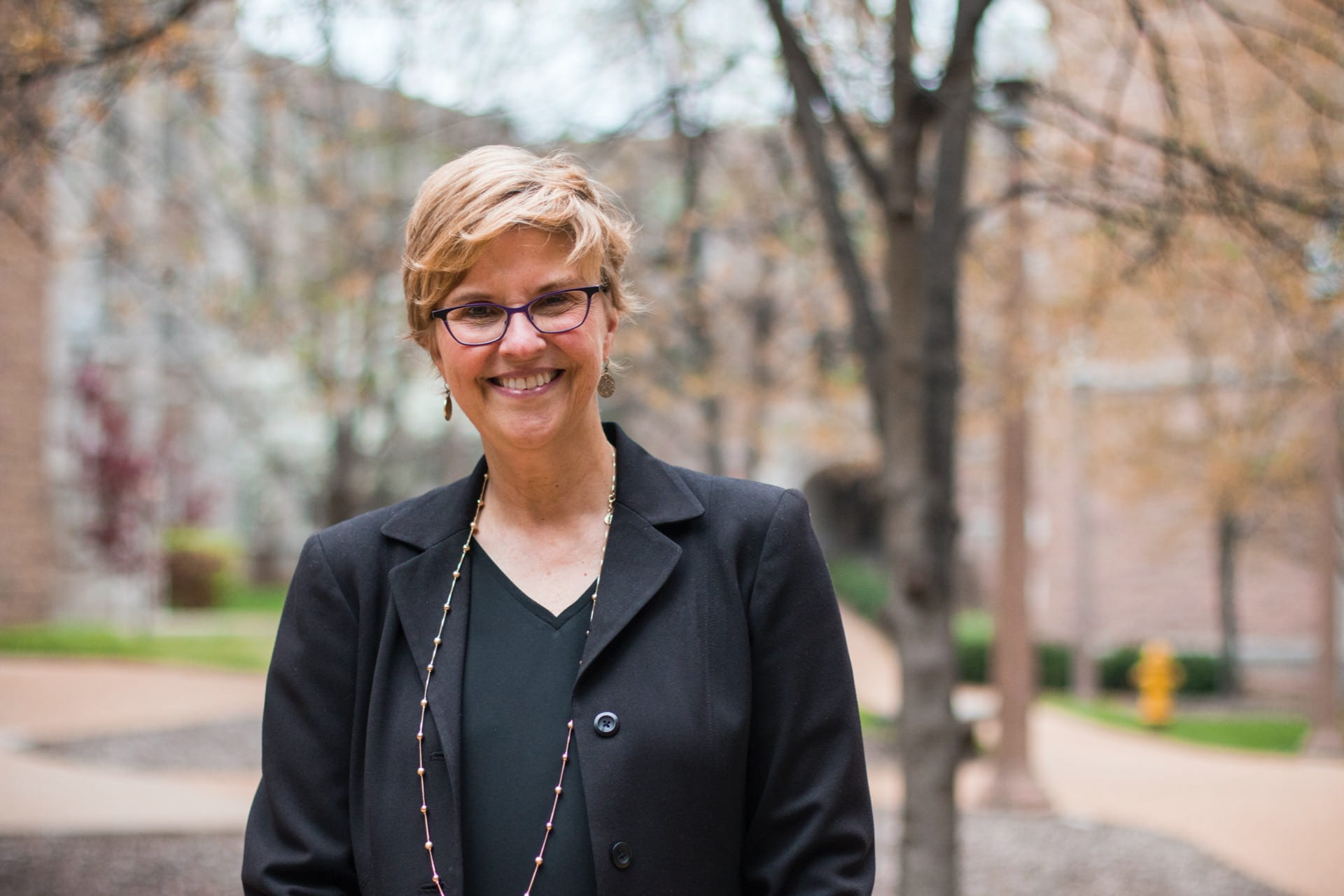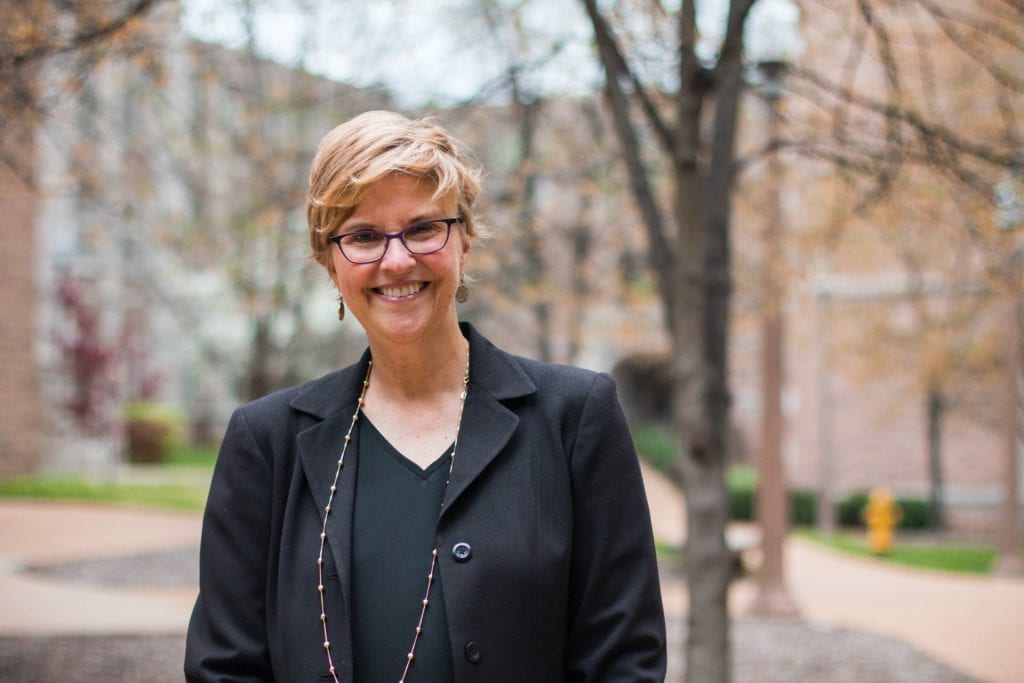
Jan Duchek is an Emeritus Professor of Psychological & Brain Sciences and of Occupational Therapy at Washington University in St. Louis. She retired this past June after having worked at WashU for 35 years. Professor Duchek first started working at the Washington University School of Medicine, where she was the project coordinator for the Memory and Aging Project at the Alzheimer’s Disease Research Center. She then worked as a faculty member at the medical school in the Occupational Therapy program until 2003, at which time her appointment moved to the Psychology department on the Danforth Campus, where her research on Alzheimer’s disease continued. She has taught Introductory Psychology, Experimental Psychology, Developmental Psychology, and co-taught Introduction to the Mind, Brain, and Behavior. Professor Duchek was the director of Cornerstone for five years, as well as the director of The Learning Center for one year. She also serves as a member of the PEP Advisory Board. Professor Duchek has won several teaching awards, including the David Hadas Teaching Award.
Professor Duchek recalls first hearing about the Prison Education Project (PEP) when she attended a presentation where a PEP alumnus and various faculty members involved with the program spoke about it. At that time, she remembers thinking, “that sounds like something I would really like to get involved in after I retire.” Professor Duchek initially got involved with PEP through Leonard Green, who taught Introductory Psychology for PEP last spring and for whose class she guest-lectured, and when members of the PEP administration approached her about facilitating a workshop for PEP students at the Missouri Eastern Correctional Center (MECC).
Professor Duchek led several workshops on study skills, time management skills, and strategies for effective learning. She notes that “sometimes you forget that students don’t necessarily know the best study strategies and skills.” For her, “it was a no-brainer to put something together for PEP students, knowing that these are individuals who may not have been in school for a while and that their ability to manage their time under their current circumstances may be challenging.” Professor Duchek recalls “finding conversations with students really interesting and enlightening” and knowing “that after that first workshop I wanted to stay involved and become more involved in PEP.” Professor Duchek facilitated a total of three workshops, and during the final one included a panel of students who spoke about their own study strategies and tips for being a successful college student in an environment that is often not conducive to learning. She points out that “after doing two workshops, in talking with some of students, it’s very clear that the structure of their day is something I don’t understand. Students often times learn best from each other and not from us, so I thought it would be a great idea to have a student panel because they can truly speak to their own circumstances. I can give theoretical strategies and tips for how to manage time, but obviously they know best.”
The pandemic and the transition to remote and virtual learning has undoubtedly shifted the way students and educators interact and the way educational material is delivered. As someone who studies cognition and learning, Professor Duchek has “been struck by how creative people can be in terms of presenting content in this remote manner. I’ve been impressed by the technology, what we can do with technology, and the innovate ways faculty are teaching with technology.” However, she still feels there is an important element that is lacking: “The thing that I miss the most is the social experience. Even when you are communicating over Zoom, there’s something about the social interaction of learning that’s still missing. Even if I am attending class on Zoom, I’m still sitting by myself in my home learning and trying to stay engaged. The pandemic has forced us into learning as an individual effort, which is especially true in the PEP program. Even having co-taught a class in-person on the Danforth campus, those classes are still missing social interaction. By necessity, students are spread out in a huge classroom, where no one is sitting next to each other, everyone is wearing a mask, you can’t see facial expressions or emotions, students can’t whisper to each other and don’t congregate or come up and talk to you before and after class. This semester I experienced two extremes: no interaction at all with my PEP class to an in-person class where the social component is still missing.”
Learning has become an individual effort, which is not beneficial to learning. Learning is a social enterprise – we learn from each other.
This semester, Professor Duchek taught a virtual, asynchronous course called “The Mind, The Brain, and Everyday Behavior: Topics of Attention and Memory” at MECC. This course was a hybrid of a class she has regularly co-taught on the Danforth campus for 20 years, “Introduction to the Mind, Brain, and Behavior.” According to Professor Duchek, “the course covered two main topics: attention and memory. We talked about those two aspects of cognition first from a cognitive science/theoretical perspective: how we theoretically conceptualize attention and memory and how we empirically go about studying attention and memory.” For this course, Professor Duchek tried to expand upon everyday aspects of attention and memory – things like multitasking, rapid cognition, and implicit bias. The class also discussed everyday memory, including false memory, flashbulb memory, memory as it relates to eyewitness testimony, ways to improve one’s memory, collective memory, memory in advertising, and why and how we forget.
Throughout this semester, Professor Duchek was struck by “how patient her students were with technical issues and how encouraging they were to me.” Outside of the obvious educational benefits, Professor Duchek sees the importance of PEP and other higher education in prison programs as fostering intellectual growth, curiosity, and self-worth.
We know education fosters intellectual growth, it fosters curiosity, it affords opportunities. What I have been struck by is the importance of education for basic self-worth.
“What I’ve heard from so many of [the students] is that this program provides them with a sense of self- worth. Not just a boost to self-esteem, but something much more basic…making people feel their life has value. This program provides respite from their daily existence and hope for the future. I have gained as much from this experience, if not more, than the students. I’ve learned patience and gratitude, which is humbling.” Over the next 5-10 years, Professor Duchek hopes that PEP can increase number of students who have opportunity to participate in the program, increase faculty involvement, increase the number of and diversity of course offerings, and infuse different types of real-world learning experiences into the program.
